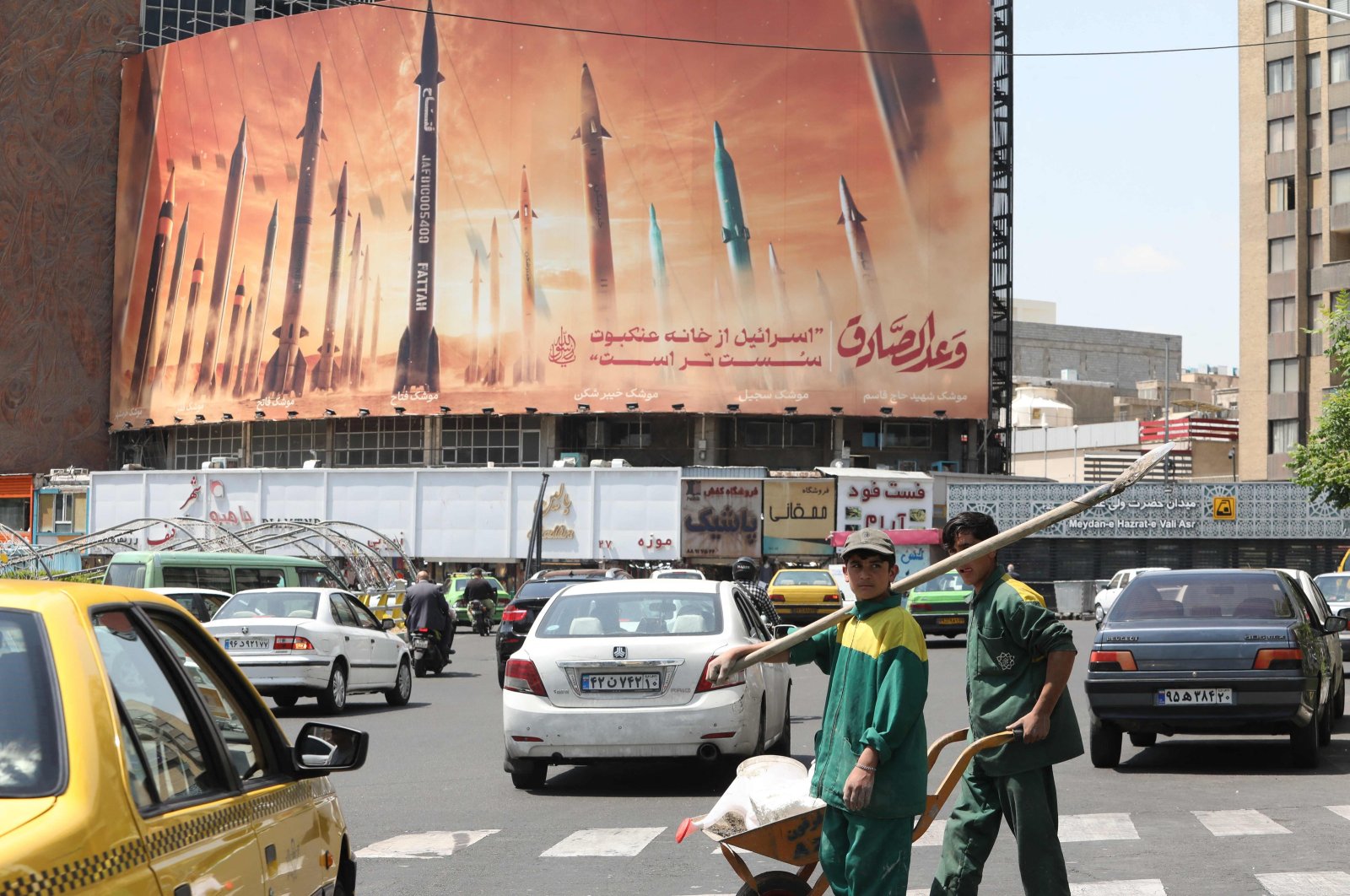Following Iran’s retaliation against Israel’s assault on its embassy in Damascus, Israel’s overnight airstrikes in the Isfahan province of Iran, a nuclear site and air base have escalated the tension between the archrivals.
Initially, Israel sought to coordinate action against Iran with the United States but Washington declined to participate in any Israeli retaliatory measures despite ongoing military support to Tel Aviv, presenting a complex equation.
Journalist Bethan McKernan asks, “All-out war or de-escalation: What will (Israeli Prime Minister Benjamin) Netanyahu do next?” However, some sections of the Western press, politicians and public bodies are in favor of “avoiding” confrontation with Iran and arguing that “Israel should not rush to strike back at Iran.”
In contrast, many critics believe the “Iranian regime’s lawlessness combined with its Russian leaning policies should prompt an urgent rethink by the United Kingdom and allies.”
So far, the Israel-Iran confrontation has buried the real issue, which is how to stop human-driven starvation in Gaza and pressure Israel for a permanent cease-fire. Many believe that the “Iran attack has distracted the aid effort” in Gaza.
Although several experts believe that the West is not willing to start a new war in the Middle East, the West’s unconditional support of “Israel is making it happen.”
The politics of war games is a complex matter. So, what happens next remains a complicated prediction. However, one can forecast that 20th-century war and conflicts continue as proxies.
Iran’s ideology, the West’s worry
The Iranian Revolution in February 1979 changed the landscape of Middle Eastern and West relations with the country that was once seen as a close ally of the West.
Ayatollah Ruhollah Khomeini’s overthrow of Iran’s Shah Mohammad Reza Pahlavi during the 1979 revolution brought Iran into the limelight of the Western media and politics.
The Iranian Revolution shook the world, especially since it alerted the authoritarian regimes and monarchies in the neighboring Middle East and beyond in the Muslim world, as well as sending shots to fragile democracies around the Western world.
Thus, a never-ending tussle started not only between Iran and the West but stretched across the Muslim world. Somehow, Iran has been attempting to export its ideas to various countries in the Middle East by backing up dictators like Syria’s Assad Bashar while endorsing and supporting the Iranian sympathizers in Yemen, Lebanon, Iraq, Bahrain, Azerbaijan and Pakistan.
Evidently, Iran has experienced delicate and robust relationships with its neighbors in the Middle East. However, compared to the Muslim world, it is seen as more on a collision course with the West and Israel.
The origins of rivalry: Western ‘double standards’
Initially, the U.S. and the U.K. toppled the democratically elected government of Mohammad Mossadegh, an infamous event that sowed the seeds of anti-West hatred among Iranians, resulting in “Operation Ajax” (the CIA plot) to capture the oil.
George W. Bush famously labeled Iran as the “Axis of Evil,” while Iranian Supreme Leader Ayatollah Ali Khamenei coined the “Death to America” slogan and often branded the U.S. as the “Great Satan” mainly for its inhumane policies. Since then, the U.S., its allies in the West and Israel in the Middle East have been constantly on a collision course with Iran.
To understand this complex equation, professor Fawaz Gerges’s book “What Really Went Wrong: The West and the Failure of Democracy in the Middle East” offers insights into the persistent confrontation between Iran, the West and Israel.
A series of academic studies are evidence of the Israeli active involvement in the Iraq-Iran war and supply of weapons to Iran. For example, Dov Waxman’s article “From Jerusalem to Bagdad? Israel and the War in Iraq” and Mansour Farhang’s article “The Iran-Israel connection” provide authentic evidence behind Iran-Israel cooperation.
Speaking, the U.S. and the West have toppled democracies, carried out covert operations, supported dictators, and financed and promoted radicals, extremists, terrorists and militias all over the Middle East and South Asia to fight its proxies and Cold War against Russia. William Blum’s books; “Rouge State: A Guide to the World’s Only Superpower” and “America’s Deadliest Export: Democracy-the Truth About U.S. Foreign Policy and Everything Else” present factual evidence of American adventures in the Middle East and Beyond.
Now, Iran and Russia have undertaken the same route as the Western powers funding proxies and meddling in the general elections, hence the West is upset. For decades, the Western unconditional military and political support to Israel has not made it capable of facing unarmed, starving Palestinians. The same goes with Iran, as Western sanctions have caused no substantial impact on Iran, suggesting that behind the scenes, Western imperialists are facilitating each other.
Given the political rhetoric, both Israel and Iran are dragging their allies possibly into a major war at some point in the future. The current situation reflects the English idiom: “You scratch my back, and I will scratch yours,” which best describes the Israel-Iran confrontation.
Of course, war is not a solution, but the sweet rivalry between Israel and Iran shows both the Iranian supreme leader and Israel’s Netanyahu need face-saving. In the end, it is the innocent Palestinians who are paying a huge price for imperialist hegemonic designs in the region. Imagine if Palestinians have missiles, airpower, and nukes. No one would have raised a question about their fate.




















































Be First to Comment